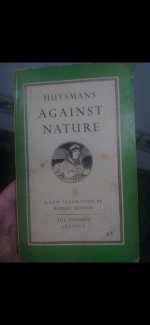jenks
thread death
La Bas is pretty much the definition of ‘pornographic godlessness’
If you’re interested in that period of French art then Barnes’ Man in the Red Coat is a great primer. The picture’s subject is Pozzi - a pioneering gynaecologist who was a friend to Montisquiou - supposedly the model for both the ‘hero’ of A Rebours and one of the models for Proust’s Charlus.
If you’re interested in that period of French art then Barnes’ Man in the Red Coat is a great primer. The picture’s subject is Pozzi - a pioneering gynaecologist who was a friend to Montisquiou - supposedly the model for both the ‘hero’ of A Rebours and one of the models for Proust’s Charlus.



